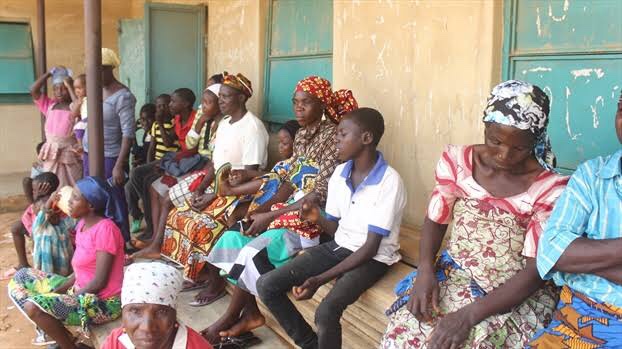
By Ihuoma Joy O
The novel corona virus pandemic set in motion, an array of experiences and results for almost everyone who witnessed and is still living in the post covid world. Specifically, on the 13th of April, 2020, the president announced that an extension of the lock down in place since March 29 in Lagos state and neighbouring Ogun state, as well as the capital, Abuja was imperative. Though, before the announcement, several states had already shut down with the arrival of the virus. For instance, in states like Kaduna, a shut down had been imposed earlier while some others initiated full or partial lockdowns, with the exception of those providing essential services such as food distributors and retailers, which the government asked to operate only within four hours in a day, as well as the health workers.
Therefore, in response to the Covid 19 outbreak in the country, a lockdown, which forced everyone to return to their families, was imperative. Though, it was initially exciting for some who worked from dawn to dusk and had just a few hours to have a good rest; however, it was difficult for some others, thus, proving the fact that the experiences differed, according to each family. This invariably suggests that the impact of the pandemic in the lives of people is a mixture of positive and negative experiences; indeed when people are stuck indoors for long periods of time, the impact of that may either be positive or negative.
To start with, the coming of the pandemic and subsequent lockdown had a serious impact on those working in the informal sector where more than 70% of Nigerians belong to. This sector comprises a wide range of occupations; from street traders, taxi drivers, artisans, hairdressers and so on, most of whom survive on a daily income; however, these sets of people were seriously hit by lockdown because their daily hustling ceased which for some, automatically translated to low incomes. As such, some could not provide adequately for their families. In fact, amid the rising hardship, some still continue to lose their jobs and even had their salaries slashed. This has led to the rise in poverty where 46% of the population lives on less than $2 a day. Therefore, the urban poor who mostly owned small scale businesses found it laborious to survive, resulting to leaking pockets because there is no money. More especially, those who depend on a daily wage to feed themselves and their families were extremely hit by movement restrictions placed by the government.
As a result, hunger took a principal seat and began to reside in the homes of many because most Nigerians observing the lockdown lacked the food and income needed for their families to survive; though, at the inception so many had money they could not spend because no one was selling while, some other families lacked finances because virtually all jobs were suspended (with the exception of those providing essential services) which made it tough for many to maintain and provide for their families. For many, this translated to and had an emotional impact on the family. In fact, families with dependent children whose salaries ceased during that period were affected by in diverse ways as it was acute for families living in poverty.
Specifically, I am aware of some children whose parents are petty traders; they really had it tough because it very difficult to get proper food during the lockdown period as some of them had no savings to depend on. Among the Urban poor who were the worst hit, a widow who is an oil seller says, “I didn’t have money to feed my children because I couldn’t go to the market which was very painful for me. When my children were going to school, they were getting food because the school gives them but when their schools closed, they became an extra burden to me because I really didn’t know how to go about their feeding” From her statement, it is clear that some families were already facing extreme hunger without the pandemic however, the coming of the covid and lockdown worsened it. This stemmed from the fact that the lockdown prevented many Nigerians, working in informal sectors, from going about their businesses. In fact, local food vendors and traders expressed fear over their ability to feed their families during the lockdown, with their daily earnings as their only source of sustenance. Even more, an increase in food prices as a result of the lockdown dealt a serious blow on many who could not stock up on necessities; this to a large extent increased the level of hardship.
Still on the views of the people, a young man laments that “during the pandemic, my company shutdown and because I had not saved enough, my family ran short of food. I couldn’t provide adequately for my kids as it required extra expenses; though my wife is a hair dresser, but she too didn’t have any customers because her shop was closed. This made it very difficult for us to survive but I am relieved that things are gradually returning to normal”. As a matter of fact, a father of three complained that “during the covid season, my family was spending more because my children were eating every time as a result, our expenses doubled if not tripled. The kids were always demanding for edibles, which sometimes, caused arguments between I and my wife; we had to sit down and plan the budget together because the kids will not understand that there’s no food. We made a hard decision in difficult times because things were very tight. In all, I can confidently say that planning out on edibles, activities and setting goals kept my family motivated”
Accordingly, a young man who lamented on the impact of the pandemic on families exposed the fact that it pushed many poor households to turn to desperate measures just to survive. He further said that in his locality, young children especially ladies faced increased risk of child labour as some, took advantage of the poor families and the pandemic. Aside the economic hardship that the pandemic foisted on the people, a woman who works as a nurse complained that “I did not bond well with my family because I always had to be at work; as a result, I was exposed to the virus since I often come in contact with sick people daily, as such, whenever I got back home , I often isolate myself; thus, as a result of my profession I was not able to bond well with my family coupled with the fact that I was hardly at home”
To help alleviate the situation, government provided palliatives to support vulnerable families, thus, reducing to the barest minimum, the risk of taking desperate measures that would put children at risk since some parents sent off their children to other families to beg. Also, the school feeding programme which took place during school closures provided food to take home for some. This programme led by the Ministry of Humanitarian Affairs- aimed to reach nine million children in three million homes across the country’s thirty six states. This also helped to curb the hunger in some families
By and large, the novel corona virus has had one impact or the other in the lives of everyone though, some more drastic than others. Invariably, this has affected the decisions and daily activities carried out in most households, as they have adjusted to life under the “new normal” but in all, the need to model calmness cannot be over emphasised.





